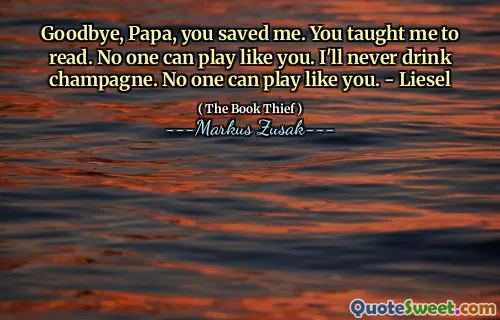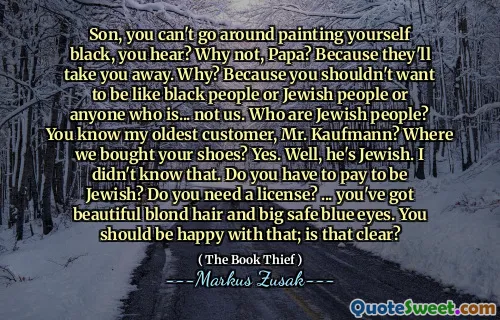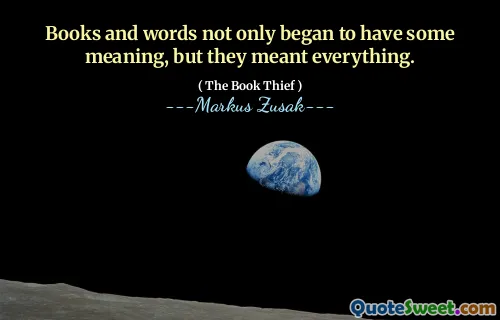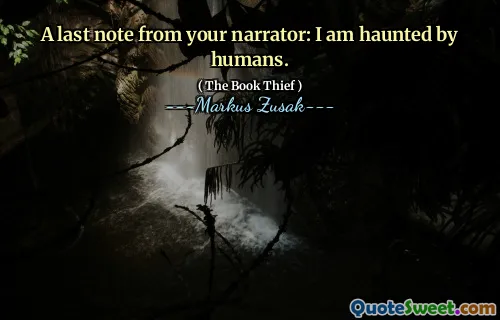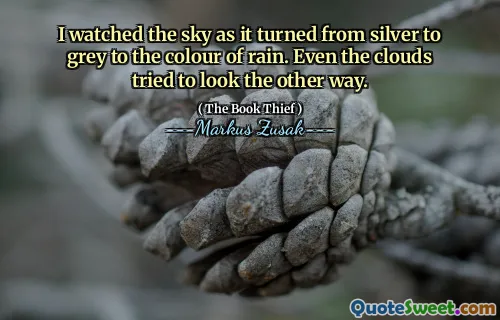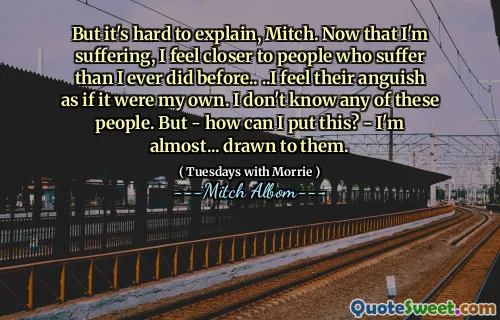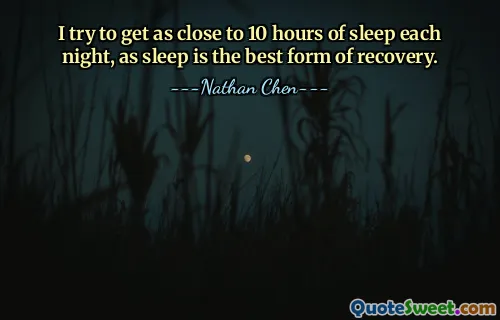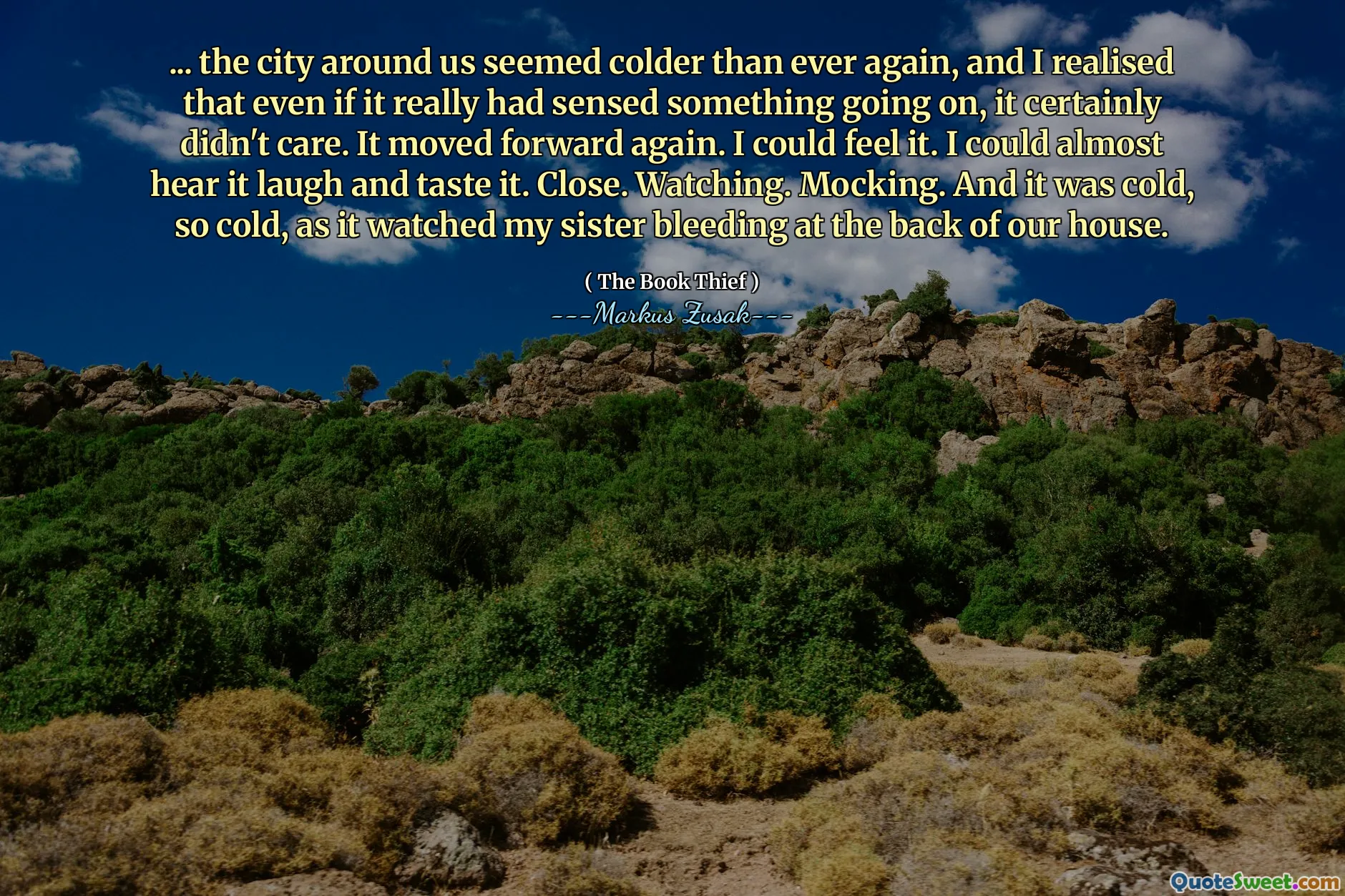
... the city around us seemed colder than ever again, and I realised that even if it really had sensed something going on, it certainly didn't care. It moved forward again. I could feel it. I could almost hear it laugh and taste it. Close. Watching. Mocking. And it was cold, so cold, as it watched my sister bleeding at the back of our house.
[Markdown Format]
This quote evokes a profound sense of alienation and the chilling indifference of the environment towards human suffering. The city, often seen as a bustling, lively entity, here becomes a cold, almost sentient observer that is detached from the individual's pain. The narrator's perception that the city "seems colder than ever" symbolizes a loss of warmth and empathy, emphasizing the emotional distance that can grow in times of trauma or chaos.
The vivid personification—suggesting the city can "laugh," "taste," and "watch"—blurs the lines between the environment and a conscious being, creating an unsettling atmosphere. It portrays a world that is not only indifferent but also maliciously mocking the suffering of the narrator's sister. The feeling that the city is "mocking" and "laughing" introduces an element of grotesque awareness, intensifying the sense of vulnerability and helplessness.
This scene effectively captures how sometimes, in moments of crisis, the world seems to turn away or even revel in our pain. This mirrors real-world feelings of isolation when one perceives that their environment or society as a whole lacks compassion or acknowledgment. The coldness is not just physical but emotional and existential, highlighting the contrast between human fragility and an uncaring universe.
Drawing from the emotional weight of this quote, it underscores themes of alienation, the human condition in the face of tragedy, and the unsettling realization that sometimes, the world continues regardless of individual suffering. It compels reflection on the importance of empathy and connection, especially during moments of despair.
The intensity of this depiction resonates profoundly, as it encapsulates the dread of feeling watched and mocked by an uncaring environment, making it a powerful meditation on suffering and societal indifference.
